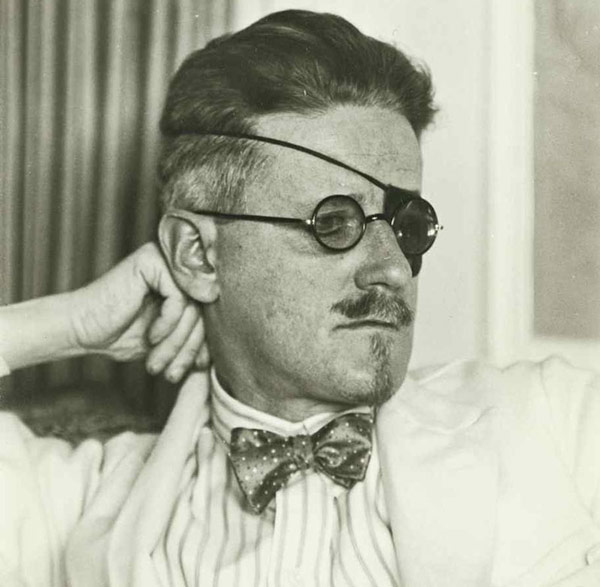The 2012 Realist Sex Novel Kerfuffle (a response to Blake and Stephen, involving also cowboys, Atlas Shrugged, and the Franzen/Marcus debate)
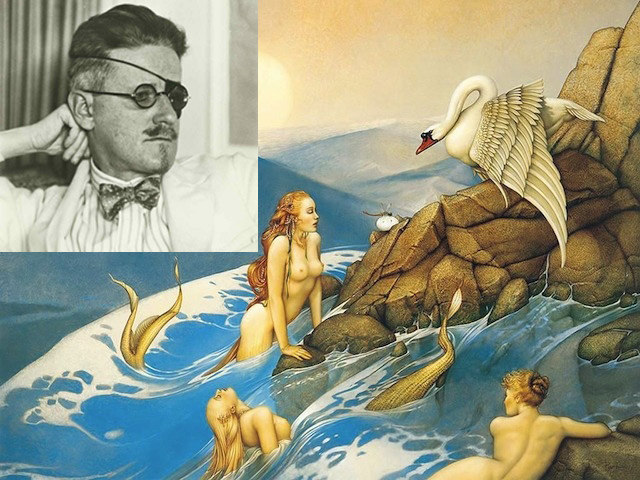
“Ho hum, I profess an interest in these cavorting sea nymphs only inasmuch as I can use them to allegorically comment on the Human Condition.”
Blake has stated, over at Vice, that he doesn’t want to read any more books about straight white people having sex. Stephen has stated, right here, that he is prepared to read many more novels about people fucking. There are substantial differences in these claims that we could pause to examine (“don’t want to read” vs. “am prepared to read”; “straight white people” vs. “people”; “sex” vs. “fucking”), but forgive me if I let those subtleties drop. Because I would rather observe that, if this is the scope of the debate, then it’s akin to one person saying, “I am tired of books about dogs, and no longer want to read more novels about them,” to which someone else replies, “I’m still willing to read some canine fiction.”
Recast in that light, it’s easy to see that neither person is right or wrong. How could they be? It is simply a matter of taste. One man has gotten tired of all those dog books. The other man is not yet so tired. The literary market, no doubt, will cater to them both. And perhaps, over time, demand for dog-free writing will grow, and drown out the pro-dog side, and the market will shift and, for some time, it will be hard to come by a copy of Marley and Me. (Here it might be helpful to replace “dogs” with some other thing, like vampires, or zombies, or alt-lit.) But through it all, one’s preference is perfectly free to steadfastly remain one’s preference. What’s not at stake, in other words, is the right to like whatever you like. The books you read say something about the person you are, and you should be proud of whoever you are! Display your chosen book(s) on the train to signal your affiliation with one of this nation’s many vibrant subcultures. Who knows? Another member of that subculture may spot you, in which case you can exchange nods, smiles, kisses! What’s more, today, thanks to the Internet, you can even make a list of the books that you like, then talk with fellow fans! (There are even web-sites devoted to this!)
Let’s try thinking instead about this argument in terms of genre. A new cowboy movie has comes out, and you and all of your friends go see it. Afterward, you’re wondering whether it’s any good or not …
I Am Prepared to Read Many More Novels About People Fucking
I haven’t read Sheila Heti or Ben Lerner’s recent novels, the impetuses for Blake Butler’s recent, anti-realism-themed Vice article, but I’d like to respond to Blake’s finely-written itemized essay, because I, personally, continue to desire novels written by humans, which relate, slipperily or not, to human reality—subjective, strange and ephemeral as it is–novels which deal with such humdrums as sex, boredom, relationships, Gchat, longing, and, beneath all, death. I want a morbid realism.
I agree with Blake that a reality show like The Hills and social media such as Facebook create stories by virtue of humans doing simply anything. The documenting, sharing, and promoting of mundane everyday human life is more prevalent and relentless than ever before. In this environment, literature (and movies) about humans (most controversially, about privileged, white, hetero humans) that presents everyday drank-beers-at-my-friend’s-apartment life, wallows in self-pitying romantic angst, and doggy paddles po-faced through mighty rivers of deeply profound ennui can potentially seem annoying, or boring, or shittastical.
25 Points: Legend of a Suicide
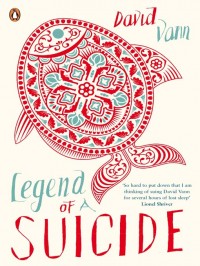 Legend of a Suicide
Legend of a Suicide
by David Vann
Harper Perennial, 2010
272 pages / $14.99 buy from Powell’s
1. If your father commits suicide, why did you write it as fiction?
2. It won 10 big awards and I bought it on EBay for three dollars, the price of half a 6 pack of Icehouse tall boys.
3. David Vann says, “I had this class once with Grace Paley in which she told us that every line in fiction has to be true. It has to be a distillation of experience, more true to a person’s life than any moment he or she actually lived. So this book is as true an account as I could write about my father’s suicide and my own bereavement, and that was possible only through fiction.”
4. Amazing descriptions of Alaska, the land, the ocean.
5. Some say experimental, but my god how conservative we must have become: there’s an abrupt (and startlingly effective) shift in POV, OK? OK.
6. Beer in a can has that metallic taste I enjoy.
7. Camus says, “But in the end one needs more courage to live than to kill himself.”
8. Suicides I have known: Christie, a former girlfriend. Andy, a kid who mooned the class in 8th grade and the suits decided to not let him graduate (a punishment we all believed was excessive even then) and shortly after he shot himself. Possibly my great-uncle ran his car into a wall, purposefully. There are stories. Suicide does not occur often in my family. Other things do.
9. For example: “Out in the channel, the lights of a convocation, twenty to thirty boats drawn together to wait for a storm to pass, for the time when they could leave the shallows and enter open ocean again. Their arrangement puzzled in a way that pleased, also: bright floodlights high up, small cabin lights, globes everywhere across their backs exposing the great nets, buffed aluminum, floats orange and red, all intermingled and reflected on waters calm as mirrors and no horizon visible, no clear seam for the surface, for water and air, reflection and light. And the only sound that of small bells, seeming to come from much further away, the bells high up on the lines of trawlers, the bells that signaled fish. No voices.”
10. I bet David Vann was pressured to make this into a memoir. Oh, I bet he was. READ MORE >
October 11th, 2012 / 1:09 pm
RETICENCE
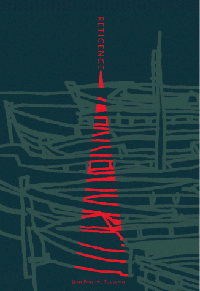 RETICENCE
RETICENCE
by Jean-Philippe Toussaint
Dalkey Archive, Reprint 2012
104 pages / $12.95 Buy from Dalkey Archive or Amazon
Jean-Philippe Toussaint is a novelist who, in his initial success with publication, was often grouped alongside other novelists which many critics were considering the “post-nouveau roman writers,” writers who had, persumably, grown up reading the New Novel authors during their formative years while the New Novels were the pinnacle of literature in France. They were often marked by a return to a more, shall we say, straight-forward narrative, a return to character, but still displayed a marked attention to everything that the New Novel broke down.
It is, perhaps, not surprising then, that upon reading Toussaint’s short novel Reticence, I couldn’t help but think of Alain Robbe-Grillet’s seminal The Voyeur, published over 40 years before Toussaint’s novel (released in France in 1991, though just seeing English translation in 2012). While Toussaint’s novel avoids the fetishization & perversion that’s present “between the lines” of Robbe-Grillet’s novel (something that was seemingly never remarked upon by the author whom Barthes’ claimed wrote purely objectively), Toussaint’s novel also seems to be a detective novel which, similar to Robbe-Grillet’s novel, may or may not be missing the crime in its entirety, recalled only obliquely–recalled? or invented out of a reticence?
October 11th, 2012 / 12:00 pm
Great First Lines: “Rose Alley” by Jeremy M. Davies
They shot her screen test in Paris, where I’ve never been, in the private room of the café Tout Va Bien, in the Latin Quarter, newly paved in tar, and still lewd that winter with debris from the blockades of stacked cobblestones—centuries old, pried right off the streets—and the stink of some secret catastrophe.
A disclaimer: Jeremy’s a dear friend and former roommate of mine—but c’mon! That opening line is obviously great. & the whole book is simply fabulous. I was motivated to post this because I just recommended, for the dozenth time, no joke, that a fellow writing classmate read the book …
So what’s going on in this opening line?
Have you read xTx?
So, I’m late to her work.
I kept meaning to give it a try, to check it out, to purchase her book Normally Special from Roxane’s cool-looking micro press Tiny Hardcore, to pay attention to her blog, to order her chapbook He Is Talking To The Fat Lady, but I got behind and I dropped the ball.
And then Dennis Cooper mentioned reading (and loving) her forthcoming Nephew imprint Billie the Bull, which caught my eye. So I decided to listen to the new Death Grips album while motoring around cyberspace checking out her work.
In the process I came across this e-book called Nobody Trusts A Black Magician. Holy heaven. It’s mesmerizing, sinister, passionate, potent, over-the-top, excessive, relentless, indecent, reckless, and utterly amazing. You can also listen to her read it, which adds a level of awesome. I paused Death Grips to listen to this, from the titular piece:
I mean, seriously.
If you haven’t entered into her work yet, take this chance to experience it. Perhaps like me you will become an admirer.
Some album covers

Belle and Sebastian album covers always bothered me because they would remind me of The Smiths. Both bands are morbidly precious — or preciously morbid? — and English; well, the former is Scottish but who cares. England is to Scotland what China is to Korea what Spain is to Portugal. As in no one cares. I have a friend who has this rule where she won’t fuck a guy if she finds Belle and Sebastian on his playlist. I can understand: I have Belle and Sebastian on my playlist and I wouldn’t fuck me. It bothers me that you take a photo, run it through a color filter and slap some typographically “literary” text on it and consider it an album cover because, right, like your fans are all sensitive art students with melted candles and a suicidy razor blade by the bathtub; and emphatic or compulsive design seems uncool and corporatey, and your life is all about casual. Casual sex; casual resume sending; casual cereal for dinner. Every time I see one of these album covers I want to have a vasectomy and not subject my child to this world and vice versa. I love it when there’s an acoustic guitar lying around at a party — the kind of party with salsa and guacamole in coffee mugs because everyone’s too mellow to actually cook — and always the least-laid guy needs to pick it up and start playing the four chords he knows. Then five to seven grimly codependent-ish people all reluctantly stay quiet and feign attention while he plays something out of key. Then he starts sincerely singing, which is basically a metaphor for the world: we make it horrible with our feelings. Some asshole says do you know any Wilco and all the more amicable networky people into electronic music with better clothes and skin are on the roof now drinking beers, holding the bottle against the sun so that it seems that the sun is inside the bottle, setting into the amber sea.
2500 Random Things About Me Too
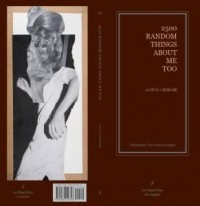 2500 Random Things About Me Too
2500 Random Things About Me Too
by Matias Viegener
Les Figues Press, 2012
246 pages / $15.00 buy from Les Figues Press
Rating: 9.0
For us it is so normal to see the clouds from above, and inside.
— section xxxix, line 12
By extrapolating the popular Facebook meme, 25 Random things about me, duration generates gravity in Matias Viegener’s 2500 Random Things About Me Too (Les Figues Press, 2012), blowing aloft a cloud of identity–a portrait of the artist’s wandering consciousness. Viegner’s sequence of anecdotal strands, aphorisms, autobiographical trills, and questions both large and small are keenly paced; fragments hang alone indefinitely while others pick back up a few lines down or pages away, forming themes that resonate in opp- and apposition throughout the work. This deceptively loose push-and-pull provides much of the work’s excitement as associations spark, link with others and hover or hang solitary and pleasantly naked.
Here’s an example from the text, titular and relatively contained:
October 10th, 2012 / 1:09 pm

